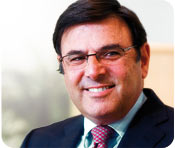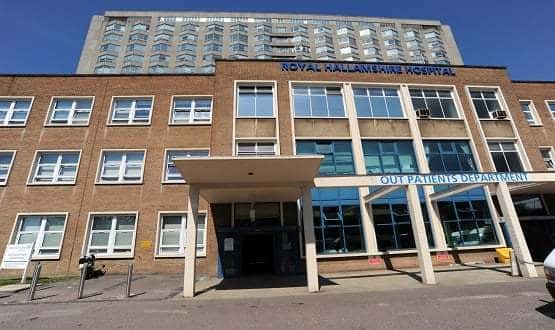IBA boss: battle has just begun
- 11 October 2007
 |
Gary Cohen, the Australian chief executive of IBA Health, has good reason to celebrate – IBA Health is now poised to take control of Britain’s iSoft.
In an exclusive interview he spoke to E-Health Insider last Thursday, the day iSoft shareholders almost unanimously accepted IBA Health’s bid that will see the company taken over by its far smaller one time rival.
It’s an audacious move that will propel IBA Health – at various stages written off in the takeover battle – from being a company with revenues of less than £40m a year to almost £250m, and going from 700 staff to 3,500. “David conquered Goliath,” he jokes.
It’s a personal triumph for Cohen who five years ago saw IBA shut out of the NHS market with the introduction of the NHS IT programme, and sell its UK operations. Now he is poised to take control of his one time greatest rival and, with the merged IBA/iSoft, will be at the centre of the NHS IT project.
“If you look at process of iSoft that started a year ago we were nowhere, they didn’t even rate us, we were not even on the short-list. When CompuGroup came in we were written off and nobody from the board or the advisors gave us a hope in hells chance of coming back. Yet look at the end point,” says Cohen.
He acknowledges that the really tough battle – to integrate the companies and deliver the Lorenzo product – has only just begun. It was the cost and delays in developing Lorenzo that cost iSoft its independence.
“We’ve got to be honest and demonstrate that our position is earned. We’ve got to show people we can do it, use the acquisition of iSoft as the beginning of a journey,” says Cohen. He stresses that IBA and iSoft are an excellent fit, both having deep health domain expertise and strong experience in “socialised medicine”.
Matching words with actions
He told EHI that the merged company needs to show that it deserves its position within the National Programme. Cohen says that integrating the two companies will take up to a year and that his challenge now is to confound the sceptics.
“It will take that long to prove that our words can be matched by actions. I am glad that people are sceptical, they should be, it’s healthy.”
He says there remains a big hill to climb “But I wouldn’t have started this journey 12 months ago, I wouldn’t have endured all this pain and kept coming back just for the sake of saying well I’m here. I think these goals are achievable and worthwhile.”
Asked whether he remained committed to delivering Lorenzo, Cohen replies: “Whatever commitments the company has given to CSC in relation to the NHS, they will be met”. He declines, however, to give any details of what these CSC/NPfIT commitments are, other than confirming that an initial version of Lorenzo will be delivered in 2008.
“I’m prohibited from talking about the delivery commitments that CSC has with the National Programme because obviously that’s CSC’s responsibility and function with the NHS. But we are working to a new delivery programme.”
“It may be arrogance, but we believe that IBA together with iSoft will have World class health IT domain experience in a world of healthcare that is dominated by socialised medicine as distinct from private healthcare.”
Not bigger, but smarter
Pressed on how the new IBA/iSoft can be confident it can deliver on Lorenzo when the old iSoft failed, he says: “It’s not a question of resources but being able to do things well”.
Intriguingly for someone about to take the helm of a software development project employing thousands in India he says it’s not size that always matters. “It isn’t a question of putting thousands of people into this it’s about being able to do things more cleverly and smartly. We will be able to help the national programme deliver the outcomes it is desperately seeking to achieve.
Cohen says there also needs to be a degree of realism, and a period of repairing and rebuilding iSoft, “We’re walking into a company which has undergone three year’s trauma and a sale process in the middle of all that. So we need to do things that quickly change that and its not going to happen overnight. And I’m not going to go out and make promises or commitments that we can’t deliver.”
Asked whether iSoft has cut too deep Cohen says. “If you look at the future there is no doubt that the sale process has come at the expense of the staff and the customers. So the message that I am going around talking about is that we have to start thinking about what is the right thing for our customers.”
But he acknowledges that there will be rationalisation, following the merger. “We’ve been quite specific that we are going to make economies of scale, and that we are going to make investment. We will take advantage of the fact that we can do things more efficiently and effectively out of an Australian HQ base.
Rationalisation will also happen “in the ANZAC business, where iSoft are strong and we are strong”. He adds, “And we’ll be getting savings out of our operations in India where iSoft have two offices and we have one. We don’t need duplication of facilities and overheads”. The merged company will consolidate its India operations into one site in Chennai.
Investment in people
Cohen stresses that in terms of operations, in head count for the UK and Europe, he is not looking to make savings “we’re actually heading the other way”
“We’re going to be making substantial investments to invest in people. I mean many of the operations have lost good quality middle managers, we’ll be investing in that.
“So we’ll be going out of our way to save the cost in areas that don’t add value and really invest and pour that money into the areas we believe the business has been starved due to the sale process.”
In terms of management Cohen says the aim will be to put in place a management structure that is “far more hands on and operational”. Though run from Sydney the company will put in place strong country management teams and base its chief technology officer in Chennai. “And I think we’ll be bringing back the leadership and vision that the company had but lost”.
While iSoft has been a company in financial crisis, he says the new merged company will be far more robust “We will also be delivering a financially strong company, rather than one that is under stress”.
“It’s why the Australians always win at rugby”.
“These are the concepts that we think are fundamental to success. No one of them is going to make it but a combination will be pretty powerful,” says Cohen who then offered an instant hostage to fortune by stating “It’s why the Australians always win at rugby”. Two days later England knocked the Wallabies out of the Rugby World Cup.
Despite having threatened to sue CSC earlier this year for initially vetoing takeover Cohen says the relationship with iSoft’s biggest customer is “superb”, though he differentiates between CSC at the operational and corporate level.
“We have always since the beginning of the sale process had superb relationships with the CSC operational team. Always! That dates back to Feb, on and off have dialogue, due diligence and not once have we had a commercial or operational issue with CSC. Obviously the corporate agenda of CSC as it played out from time to time put stresses and strains on the corporate relationship.
“I think CSC has come to the position with IBA that we are in this together… I can only tell you that we are very excited about what the opportunities with CSC represent.”
Cohen says that as an ex-lawyer he knows that contracts are just “a representation of people’s wills” and describes the CSC relationship as a “living contract”.
“As I tell my staff: we need to convince CSC that we should be in partnership with each other. We need to show and demonstrate that we don’t have this position as of right it’s got to be earned. “For too long people felt we’ve got a contract with CSC well that’s it”
“What I can say about CSC is that they have put some world-class people on the case both in Chennai and in the UK.”
Asked what IBA/iSoft has to do to convince people in the NHS, the IBA executive chairman and chief executive says: “We’ve got to deliver on our commitments and promises. Get people to trust that we will deliver and the product will do what it says it’s going to do.”




